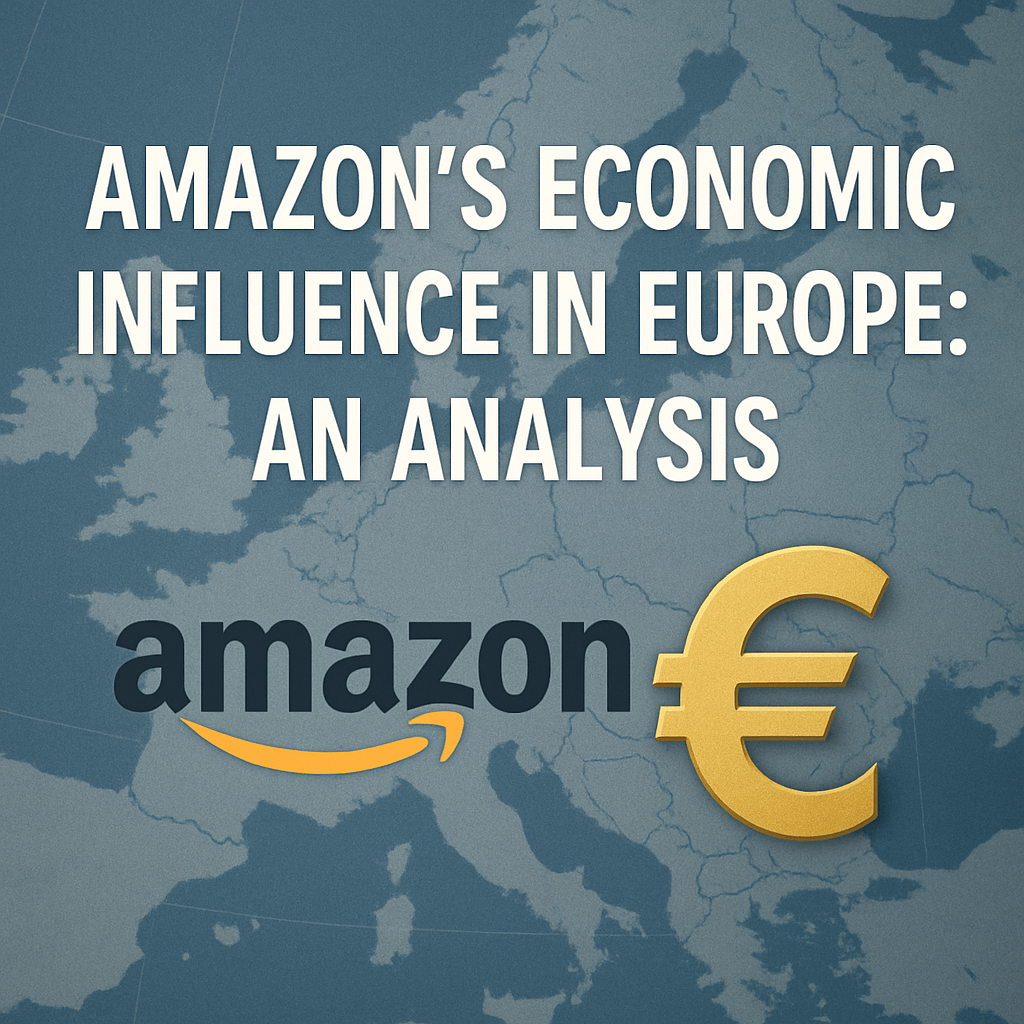Amazon’s Economic Influence in Europe: An Analysis

In 2024, Amazon reported a substantial contribution of over €41 billion to Europe’s GDP and over €29 billion to the EU27, according to their latest impact report released on June 4. This figure is notable, especially when compared to the entire GDP of Latvia, which illustrates the scale of Amazon’s economic footprint in the region.
Beyond Financial Contributions
Amazon emphasizes that its economic impact in Europe transcends mere numbers. Mariangela Marseglia, Vice President of Amazon Stores EU, states, “Our economic impact in Europe goes far beyond the numbers. We’re creating opportunities where they’re needed most, supporting local economies, and helping to revitalize communities across the continent.”
Building Pathways for People
Currently, Amazon directly employs 150,000 individuals across Europe. However, the benefits extend well beyond traditional employment metrics, particularly in regions that have experienced economic hardship. In France’s Hauts-de-France region, which has an unemployment rate of 8.7%, significantly higher than the national average of 7.3%, Amazon has created over 6,000 jobs in the last decade.
This region has been significantly affected by deindustrialization, witnessing the decline of traditional industries such as mining, steelmaking, and textiles. Amazon’s fulfillment centre in Lauwin-Planque alone employs more than 2,600 permanent staff, with 84% of employees residing within a half-hour commute. Local sentiment towards this facility is predominantly positive; eleven years after its establishment, 71% of residents recognize its beneficial impact, with 94% attributing job creation as a critical advantage.
According to a report from Eurostat, over 90,000 of Amazon’s employees work in areas with higher-than-average unemployment rates, indicating that the company plays an essential role in mitigating job scarcity in these regions.
Community Perceptions and Economic Ripple Effects
Research from Ipsos indicates an even broader social impact; 81% of local residents near an Amazon logistics facility acknowledge that job opportunities have increased since the company’s entry, and over half state that financial uplift has influenced major life decisions such as buying property or starting a family.
In areas where zero-hour contracts are allowed, Amazon has clarified that this is not an employment model utilized by the company, spotlighting their focus on stable, permanent jobs.
Continued Investment in the European Workforce
Amazon’s commitment to Europe is illustrated by its substantial infrastructure investments. In 2024, the company invested more than €55 billion in its workforce and operations across Europe, with €38 billion earmarked specifically for the EU27. This brings Amazon’s total investment in Europe since 2010 to a staggering €320 billion.
Shifting Focus Towards Cloud Computing
While many recognize Amazon predominantly for its e-commerce activities, a rapidly growing segment of its business is attributed to Amazon Web Services (AWS) and its cloud computing solutions. The future roadmap for Amazon’s investments primarily aims to bolster this technological frontier, thus driving employment across a spectrum of skill sets.
- Germany: A significant €8.8 billion will be injected into the Frankfurt region through 2026, expected to generate approximately 15,200 full-time equivalent jobs and contribute an estimated €15.4 billion to the national GDP.
- United Kingdom: In the UK, Amazon is set to invest £8 billion (€9.5 billion) before the end of 2028, supporting around 14,000 jobs annually and contributing an estimated £14 billion (€16.6 billion) to its GDP.
- France: A further €6 billion is allocated to enhance cloud infrastructure by 2031, contributing an estimated €16.8 billion to France’s GDP and sustaining around 5,271 full-time jobs each year.
- Spain: In Spain, a €15.7 billion infusion will support approximately 17,500 jobs annually, contributing an estimated €21.6 billion to the country’s GDP through to 2033.
The Broader Economic Implications
As Amazon continues to expand its investments in Europe, economic analysts suggest that these initiatives could lead to a multitude of positive outcomes. The blend of job creation and the fostering of economic stability in regions with high unemployment translates into a two-fold advantage: enhanced community resilience and increased consumer spending power.
Moreover, experts believe that Amazon’s investments in cloud infrastructure could also spur innovation in tech sectors, potentially attracting more startups and established companies to Europe, further driving economic activity. The principle of technology fostering economic development is validated through various studies, reinforcing the notion that every €1 invested in digital infrastructure has the potential to yield €4–€5 in economic returns.
“Investment in cloud infrastructure is not just about growth; it’s about ushering communities into a new economic paradigm,” said John Smith, an economist specializing in technology-driven growth.
Conclusion
Amazon’s role in the European economy is multifaceted and complex. From creating jobs to investing in infrastructure that promotes technological advancement, the company’s influence reaches deep into local communities. As the digital landscape continues to evolve, so too does the potential for growth driven by tech companies like Amazon, marking a significant shift that could redefine the economic framework of Europe.
Source: euronews